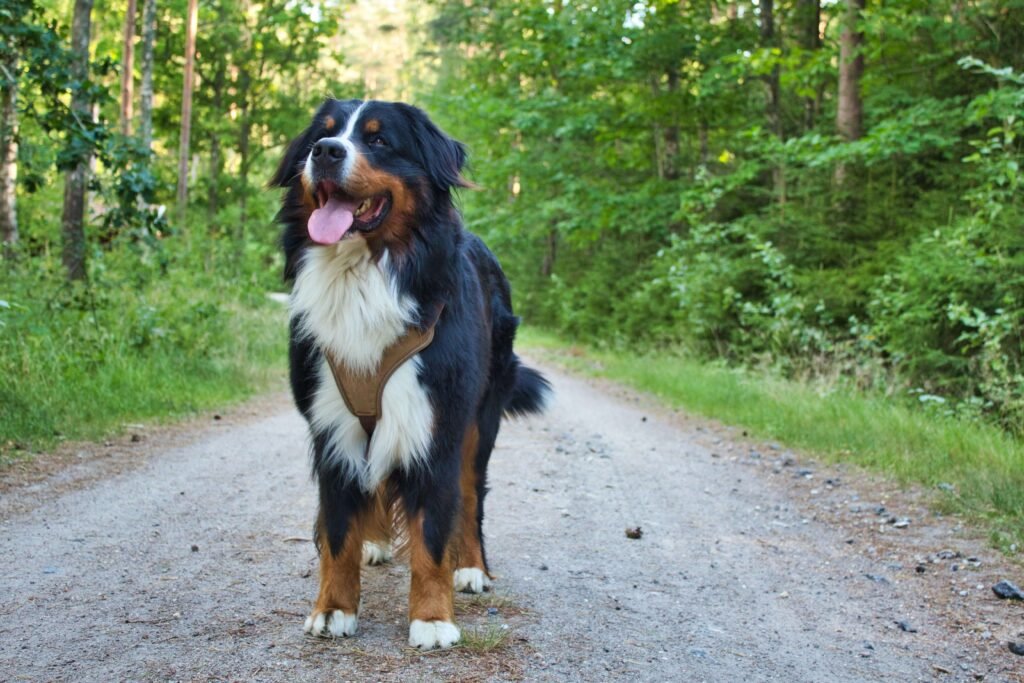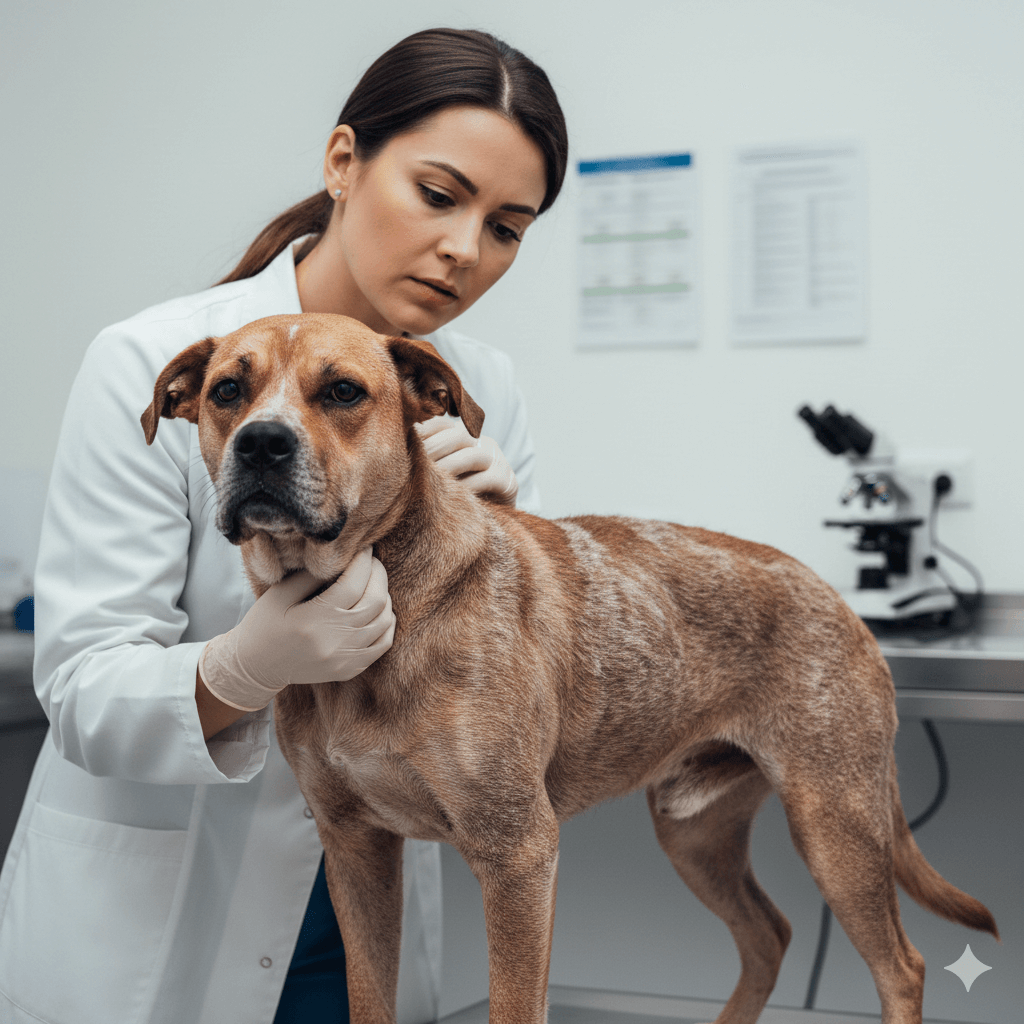Bernese Mountain Dog Health Issues
The Bernese Mountain Dog, known for its gentle temperament and striking tri-color coat, is a beloved breed cherished by families worldwide. However, like many large breeds, these dogs are prone to specific health issues that potential and current owners should be aware of. Understanding these conditions can help you provide the best care for your furry companion, ensuring they live a long, happy, and healthy life. From genetic predispositions to lifestyle-related concerns, this guide explores the most common Bernese Mountain Dog health issues and how to manage them effectively.
Common Genetic Health Issues in Bernese Mountain Dogs
Due to their genetics, Bernese Mountain Dogs are susceptible to several hereditary health problems. Awareness of these conditions allows for early detection and intervention, improving your dog’s quality of life.
Hip Dysplasia:
A condition where the hip joint doesn’t develop properly, leading to arthritis and mobility issues. Regular vet check-ups can help monitor and manage symptoms.Elbow Dysplasia:
Similar to hip dysplasia, this affects the elbow joints, causing lameness and discomfort. Early diagnosis through X-rays is crucial for treatment.Degenerative Myelopathy:
A progressive neurological disease that affects the spinal cord, leading to weakness and eventual paralysis. Physical therapy may slow progression.Bloat (Gastric Torsion):
A life-threatening condition where the stomach twists, cutting off blood supply. Feeding smaller meals and avoiding exercise after eating can reduce risk.Cancer:
Unfortunately, Bernese Mountain Dogs have a high incidence of cancer, particularly histiocytic sarcoma. Routine screenings can aid in early detection.
By staying informed about these genetic health risks, you can take proactive steps to ensure your Bernese Mountain Dog remains as healthy as possible.

Lifestyle-Related Health Concerns
In addition to genetic predispositions, certain health issues in Bernese Mountain Dogs stem from their environment and daily habits. Addressing these factors can significantly improve their well-being.
Obesity:
Overfeeding or lack of exercise can lead to weight gain, exacerbating joint problems like hip and elbow dysplasia. Maintain a balanced diet and regular activity.Heat Sensitivity:
Their thick coats make Bernese Mountain Dogs prone to overheating. Avoid strenuous exercise during hot weather and provide ample shade and water.Joint Pain from Inactivity:
Lack of movement can stiffen joints, worsening conditions like arthritis. Engage your dog in low-impact activities such as swimming or short walks.Dental Disease:
Poor dental hygiene can result in gum infections and tooth decay. Brush your dog’s teeth regularly and schedule professional cleanings.Skin Allergies:
Environmental allergens or food sensitivities can cause itching and irritation. Work with your vet to identify triggers and implement solutions.
Addressing these lifestyle factors ensures your Bernese Mountain Dog stays comfortable and active throughout their life.
Check this guide 👉Bernese Mountain Dog Weight: Best 7 Expert Tips!
Check this guide 👉Black Bernese Mountain Dog: Best 7 Expert Tips!
Check this guide 👉Bernese Mountain Dog Poodle Mix: Best 7 Expert Tips!
Preventive Measures for Health Issues | Signs to Watch For |
|---|---|
Provide a balanced diet and portion control | Limping or difficulty walking |
Schedule regular vet check-ups and screenings | Excessive panting or lethargy |
Keep your dog cool in warm weather | Swollen joints or stiffness |
Brush teeth daily and offer dental chews | Bad breath or drooling |
Use joint supplements as recommended | Persistent scratching or skin redness |
Managing and Treating Health Issues
While prevention is key, knowing how to manage and treat existing health problems is equally important for maintaining your Bernese Mountain Dog’s quality of life.
Medication for Pain Relief:
Anti-inflammatory drugs and pain relievers can alleviate discomfort caused by conditions like arthritis or dysplasia. Always follow your vet’s dosage instructions.Physical Therapy and Rehabilitation:
Tailored exercises and therapies can improve mobility and strengthen muscles affected by joint diseases.Surgical Interventions:
In severe cases of hip or elbow dysplasia, surgery may be necessary to correct structural abnormalities and restore function.Weight Management Programs:
Working with a vet or nutritionist to create a weight loss plan reduces strain on joints and improves overall health.Regular Monitoring and Follow-Ups:
Consistent veterinary care ensures any changes in your dog’s condition are addressed promptly, preventing complications.
By combining medical treatments with supportive care, you can help your Bernese Mountain Dog thrive despite health challenges.
Tips for Promoting Longevity and Well-Being
To maximize your Bernese Mountain Dog’s lifespan and happiness, focus on holistic care that addresses both physical and emotional needs.
Provide Mental Stimulation:
Puzzle toys and training sessions keep your dog mentally sharp and engaged, reducing boredom-related behaviors.Encourage Socialization:
Regular interaction with people and other dogs fosters confidence and prevents anxiety-related issues.Create a Comfortable Living Space:
Ensure your home has soft bedding and easy access to resting areas, especially for older dogs with mobility challenges.Stay Up-to-Date on Vaccinations:
Preventative healthcare protects against infectious diseases that could compromise your dog’s immune system.Offer Emotional Support:
Spend quality time bonding with your dog through play, grooming, and affection to strengthen your relationship.
These practices not only enhance your dog’s physical health but also nurture their emotional well-being.
Signs of Aging in Bernese Mountain Dogs
As Bernese Mountain Dogs age, their bodies undergo changes that require special attention. Recognizing signs of aging helps you adapt their care routine accordingly.
Decreased Energy Levels:
Older dogs naturally become less active, requiring adjustments to exercise routines to avoid overexertion.Graying Fur Around the Muzzle:
This visible sign of aging is normal but signals the need for increased health monitoring.Stiffness or Slower Movements:
Arthritis or joint issues may develop, necessitating supplements or medications for comfort.Changes in Appetite or Weight:
Fluctuations in eating habits or weight can indicate underlying health problems.Increased Sleep Patterns:
Senior dogs tend to sleep more, so ensure they have a cozy, quiet space to rest.
By observing these signs, you can tailor your care to meet the evolving needs of your aging Bernese Mountain Dog.
Benefits of Joint Supplements
Joint supplements play a vital role in supporting the health of large breeds like Bernese Mountain Dogs. These products offer numerous advantages for maintaining mobility and comfort.
Reduces Inflammation:
Ingredients like omega-3 fatty acids combat inflammation, easing pain associated with arthritis.Supports Cartilage Repair:
Glucosamine and chondroitin promote cartilage regeneration, slowing joint degeneration.Improves Mobility:
Dogs experience greater ease of movement, allowing them to stay active longer.Prevents Future Damage:
Starting supplements early can delay the onset of joint-related issues.Enhances Overall Quality of Life:
A pain-free dog is happier and more energetic, strengthening your bond with them.
Incorporating joint supplements into your dog’s regimen can make a significant difference in their long-term health.
Creating a Safe Environment for Your Dog
A safe and comfortable environment is essential for preventing injuries and promoting relaxation in Bernese Mountain Dogs. These tips help you design a dog-friendly space.
Non-Slip Flooring:
Hardwood or tile floors can be slippery; use rugs or mats to prevent falls.Accessible Sleeping Areas:
Provide orthopedic beds at ground level to accommodate aging or injured dogs.Secure Outdoor Spaces:
Fenced yards protect your dog from wandering into unsafe areas or traffic.Temperature Control:
Keep your home cool in summer and warm in winter to accommodate their sensitivity to extreme temperatures.Childproofing Hazards:
Remove small objects, cords, or toxic plants that could pose risks to curious pups.
A thoughtful living space ensures your Bernese Mountain Dog feels secure and supported at all times.
Frequently Asked Questions About Bernese Mountain Dog Health
What is the average lifespan of a Bernese Mountain Dog?
Bernese Mountain Dogs typically live between 7 to 10 years, though proper care can extend their lifespan.
Are Bernese Mountain Dogs prone to cancer?
Yes, unfortunately, they have a higher risk of developing cancers such as histiocytic sarcoma and lymphoma.
How can I prevent bloat in my Bernese Mountain Dog?
Feed smaller meals more frequently, avoid vigorous exercise after eating, and consider using a slow feeder bowl.
Do Bernese Mountain Dogs require special grooming?
While their coat is easy to maintain, regular brushing helps manage shedding and prevents matting.
Can I take my Bernese Mountain Dog jogging?
Moderate jogging is fine for healthy adults, but avoid overexertion, especially in hot weather.
Is pet insurance worth it for a Bernese Mountain Dog?
Many owners find pet insurance beneficial due to the breed’s potential for costly medical treatments.
Caring for Your Beloved Bernese Mountain Dog
Owning a Bernese Mountain Dog comes with immense joy, but it also requires dedication to managing their unique health needs. By understanding the genetic and lifestyle-related challenges they face, you can take proactive measures to ensure their well-being. From preventive care to early intervention, every effort you make contributes to a longer, healthier, and happier life for your loyal companion. Remember, your love and commitment are the greatest gifts you can give to your Bernese Mountain Dog.
How to Check Your Cat for a Fever: Best 7 Expert Tips! – Learn the signs, safe temperature checks, and when to see a vet. Keep your feline healthy and happy!
How to Check Your Dog for a Fever: Best 7 Expert Tips! – Learn the signs, safe temperature checks, and when to see a vet if your dog has a fever.
Hypothyroidism and Its Impact on Cat Skin: Best 7 Tips! – Discover how hypothyroidism affects your cat’s skin, spot symptoms early, and learn effective care strategies to keep your feline healthy.
Hypothyroidism and Its Impact on Dog Skin: Best 7 Tips! – Discover how hypothyroidism affects your dog’s skin, spot symptoms early, and learn effective care strategies to restore their health.





